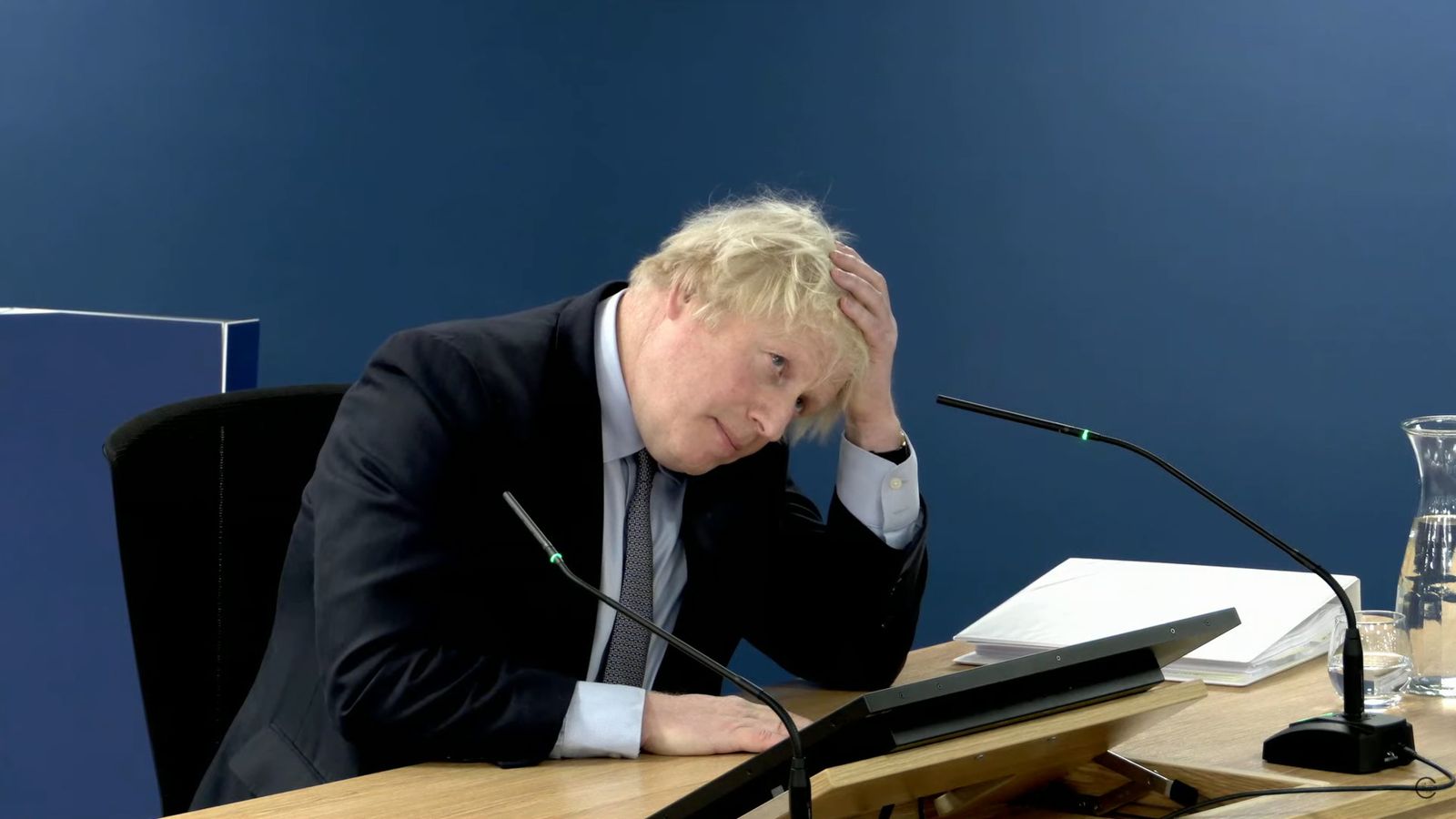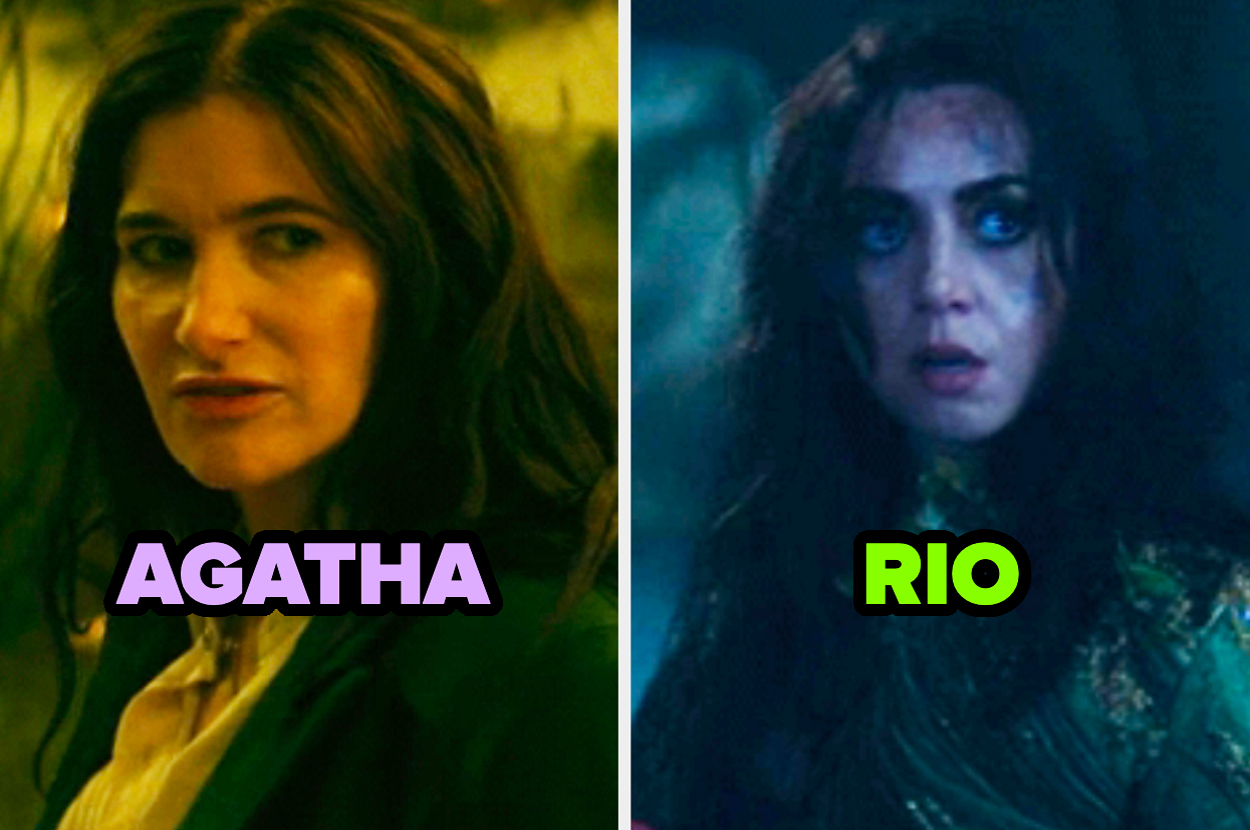Boris Johnson was interrupted as he apologised for the “suffering” caused by the COVID pandemic.
Four people were subsequently removed from the hearing, where they had been in the public gallery holding up pictures.
Mr Johnson told the inquiry: “I am deeply sorry for the pain and loss and suffering.”
One protester held up a poster reading: “The dead can’t hear your apologies.”
Mr Johnson went on to say he was “grateful” to the healthcare workers and public servants who helped to protect the country during the pandemic and that he hoped the inquiry was able to “get answers to those very difficult questions” victims and their families are “rightly asking”.
Lead counsel to the inquiry Hugo Keith KC asked Mr Johnson to confirm whether he believed COVID sufferers and bereaved families were “entitled to full and rigorous scrutiny” of him – to which he replied: ” Of course.”
Boris Johnson to apologise but say he got big calls right at COVID inquiry
COVID inquiry about ‘scapegoating’ senior government figures, Boris Johnson’s sister says
The Week… Boris Johnson’s at the COVID inquiry
The former prime minister was speaking on the first day of his appearance at the official COVID inquiry he set up in order to learn the lessons of the pandemic for the future.
He is the inquiry’s most highly anticipated witness and follows on from fellow politicians including former health secretary Matt Hancock, former deputy prime minister Dominic Raab and Levelling Up Secretary Michael Gove.
Mr Johnson will be questioned for two days about decisions he made which took the country into three national lockdowns.
The former prime minister told Mr Keith that “unquestionably” mistakes were made by his government during the pandemic, adding that he took “responsibility for all the decisions that we made”.
Pressed by Mr Keith KC on what mistakes he felt were made, Mr Johnson cited communications and the different messaging coming from the different governments in the UK.
He said the mistakes he took responsibility for included the speed of the government’s response to the pandemic in 2020, the lockdown decisions and their timeliness, the circulation of the virus in the residential care sector and the Eat Out to Help Out scheme.
He also said he took responsibility for the decision not to introduce a circuit-breaker later in 2020.
The former prime minister said: “So many people suffered, so many people lost their lives.
“Inevitably in the course of trying to handle a very, very difficult pandemic in which we had to balance appalling harms on either side of the decision, we may have made mistakes,” he added.
However he said the government was “doing our best at the time, given what we knew, given the information I had available to me at the time, I think we did our level best”.
“Were there things that we should have done differently? Unquestionably.”
The inquiry, which is now examining decision-making and political governance, began with Baroness Hallett raising issue with the briefings ahead of Mr Johnson’s appearance, arguing that a leak “undermines the inquiry’s ability to do its job fairly, effectively and independently”.
In the days leading up the inquiry there were reports anticipating Mr Johnson’s apology and the fact that not all of his WhatsApps would be made available to the inquiry – with about 5,000 messages on his phone from January 30, 2020 to June 2020 missing.
Mr Johnson said he did not know the “exact reason” they were not located, but said it was” something to do with the app going down and then coming up again, but somehow automatically erasing all the things between that date when it went down and the moment when it was last backed up”.
Mr Keith said a technical report provided by the former prime minister’s solicitors suggested there may have been a factory reset on the phone at the end of January 2020 followed by an attempt to reinstall its contents months later in June – something Mr Johnson said he did not remember.
“Can I, for the avoidance of doubt, make it absolutely clear I haven’t removed any WhatsApps from my phone and I’ve given you everything that I think you need?” he said.
As well as politicians appearing before the inquiry, other figures that have given evidence include top scientists at the time – including Chief Medical Officer Chris Whitty and former chief scientific adviser Sir Patrick Vallance – and Mr Johnson’s former senior adviser Dominic Cummings.







